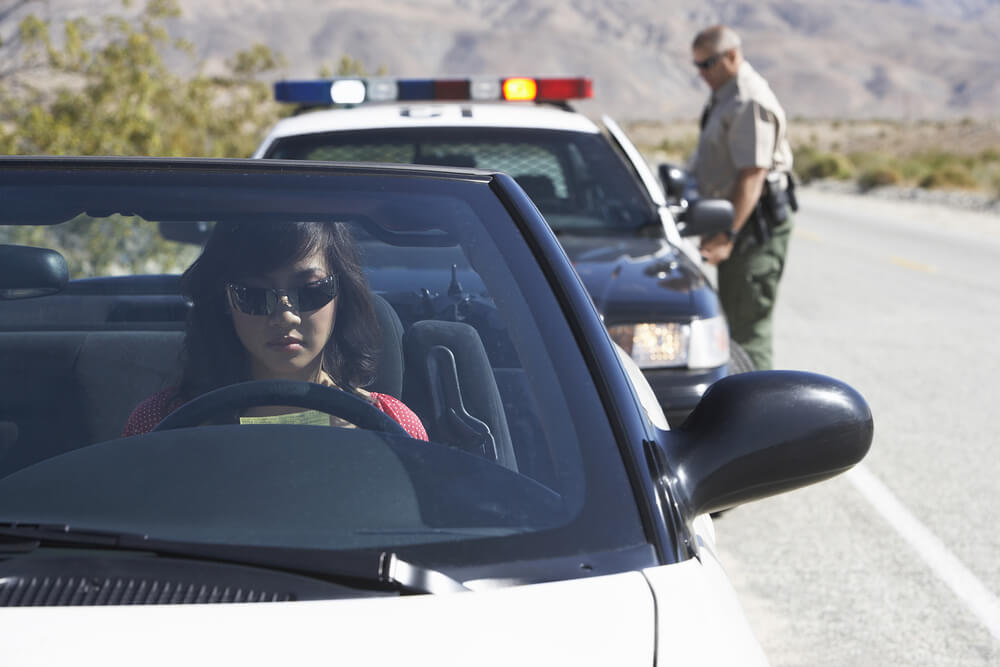
A speeding ticket is what the police give you if you are caught driving over the posted speed limit. Most drivers have received at least one speeding ticket since getting their drivers license. Even so, people have questions regarding speeding tickets, including how they can affect you, your driving record and, most importantly, your car insurance.
Here are six (6) things you need to know about speeding tickets.
1. What Is a Moving Violation?
A moving violation refers to an offense that takes place when the vehicle is moving. This includes speeding, failure to yield, and failure to use your turn signal. Moving violations can result in traffic tickets. When you receive one, you can pay the fine or contest it in court.
2. How Much Does a Speeding Ticket Cost?
While the average cost of a ticket is $150, you can pay much more or less depending on how fast you’re driving and your location. For instance, if you’re flying down the interstate in Illinois, Georgia, Nevada or Virginia, you might rack up more than $2,000 in fines. That’s much more than you will have to pay in other states.
3. Will a Speeding Ticket Raise Insurance Costs?
Probably. Since insurance companies base their car insurance quotes heavily on your performance behind the wheel, it’s not surprising that getting caught breaking the rules of the road might indicate to them that you are less responsible than they would like. If you get enough of these citations, you could be labeled a high-risk driver – and that could cause your insurance rates to soar.
Speeding tickets can be costly no matter what state you live in.
How much is a speeding ticket in California? A study found that a 40-year-old California driver can expect to pay 42 percent more for insurance coverage after a single speeding ticket.
In every state, speeding ticket rates will vary and that is the reason to slow down when you’re driving.

4. Is a Speeding Ticket a Misdemeanor?
Generally, no. Most speeding tickets don’t even reach the level of misdemeanor and are considered an infraction punished by a citation. However, as with most things, it is dependent on the circumstances. For example, in some cases driving over a certain mph may move you into a higher level of infraction. Another example is racing, which is typically considered a misdemeanor.
5. What if I Get Caught Speeding in a Work Zone or a School Zone?
You’ll be facing much more serious fines and charges if you are caught speeding in a special zone, such as a school or work zone. These zones are set up to protect children and workers who are repairing the roads. States take these slower zones very seriously. Expect a hefty fine, points on your license and the possibility of increased car insurance rates.
6. How Long Does a Speeding Ticket Stay on Your Record?
The length that speeding tickets stay on your record depends on where you live, the circumstances of the ticket and whether it is your first offense. On average, you can expect tickets for minor traffic violations to stay on your record for three to five years. If you’re a California resident, speeding tickets will remain on your record for 39 months. It’s much longer if you live in Virginia, though. There, your speeding ticket will stay on your record for a full five years.
Drive Safely and Find Low-Cost Auto Insurance Online Today
It’s a good idea to drive the speed limit, so you don’t get a ticket. Speeding tickets are expensive and can cause your insurance rates to go up. Also, since they stay on your driving record for so long, the impact will follow you for years. Slow down, so you don’t spend your hard-earned money on traffic offenses.
If you do have a driving record with some dings, check out a fast and free online car insurance quote with Freeway Insurance. You can also give us a call or stop in one of our many locations.


